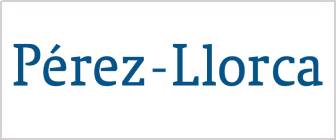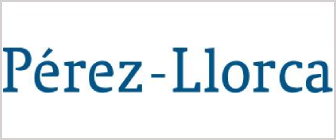The Portuguese Patent & Software Box (P&S Box) regime presents a compelling tax incentive, designed to bolster research and development (R&D) activities, attract technological enterprises, and enhance Portugal’s competitive standing in the European Union.
The Portuguese P&S Box establishes an 85% corporate income tax (CIT) exclusion on net income derived from agreements for the transfer or temporary use of patents, designs, models, or software copyrights. Under this incentive, the net eligible income subject to CIT may be reduced to 15%, providing a significant tax relief to businesses that generate eligible income through intellectual property (IP).
Despite some uncertainties regarding its scope and interpretation, the regime is an effective tool for companies that seek to develop and monetise their IP (through royalties and, in our view, also through licensing or outright sales).
With the global focus increasingly shifting toward artificial intelligence (AI) and digital innovation, Portugal’s P&S Box serves as a key incentive for AI developers and tech companies looking to establish operations in an innovation-friendly jurisdiction.
The Evolution of the P&S Box
The Portuguese P&S Box was introduced in 2014 under Article 50-A of the CIT Code. Initially, the regime granted a tax reduction of 50% on income derived from the “transfer or temporary use” of registered IP rights, such as patents and industrial designs. Over time, this incentive structure was refined and expanded as follows:
- 2016: The “modified nexus approach” was introduced, ensuring that tax benefits were directly tied to R&D investments within Portugal.
- 2020: The regime was expanded to include software-related copyrights, forming what is now known as the “Software Box”.
- 2022: The exemption rate on eligible net income was increased from 50% to 85%, making the regime more attractive to innovators and companies involved in IP development.
- 2023: A clarification in the CIT Code – contradicting the previous position of the Portuguese Tax Authorities (PTA) – confirmed that the P&S Box is not subject to the limits typically imposed on tax benefits, allowing companies to maximise their tax savings without facing restrictive caps.
These legislative changes reinforce Portugal’s ambition to establish itself as a hub for technology-driven investment, particularly software development and AI.
Conditions required for the P&S Box to apply
To qualify for the P&S Box regime (currently 85% deduction of eligible income), specific conditions must be met:
- Eligible Income: Income should derive from the “transfer or temporary use” (regarding the scope of this concept please refer to the following section).
- Registered Rights: The eligible IP - patents, designs, models, and software copyrights – must be formally registered.
- Commercial Use: The acquiring or using entity must utilise the rights in a commercial, industrial, or agricultural activity.
- Jurisdictional Restrictions: The purchaser or user of the rights cannot be domiciled in a blacklisted jurisdiction, as defined by the Portuguese Ministerial Order no. 150/2004, of February 13, and any subsequent amendments.
- Limitations on Deductible Costs: The results of the use of the rights by the purchaser/user must not involve any supply of services that create tax-deductible costs for the beneficiary of the regime or any related company.
- Separate Accounting: The beneficiary of the regime must maintain separate accounting records for activities connected to the rights.
Scope of Application – the “transfer or temporary use” concept
In general terms, a “Patent Box” regime can include income (always arising from the development of IP rights or copyrights on eligible intangibles) of various natures, such as (i) definitive transfer of rights (capital gains from the sale of rights), (ii) temporary transfer of rights (royalties), (iii) licences for use (without transfer of rights), (iv) sales of related goods or services incorporating those rights – “embedded IP income” or “notional royalties”, and also (v) income arising from the infringement of any of the aforementioned rights.
In Portugal, based on the wording of the Portuguese CIT Code, the Portuguese P&S Box regime applies to income derived from the “transfer or temporary use” of patents, designs, models, and software copyrights, including income arising from the infringement of any of the aforementioned rights, but expressly excluding “income arising from ancillary service provisions”.
While the legislation suggests a broad application covering both permanent and temporary transfers and temporary licensing (use), the PTA have adopted a more restrictive interpretation.
Currently, the PTA predominantly apply the regime to cases involving a clear temporary transfer of rights (i.e., royalties)[1], limiting its application to broader software-related transactions such as licensing income, where rights are granted for use without ownership transfer, and permanent transfer of IP. This approach creates uncertainty for software companies or developers that aim to leverage the regime.
Additionally, unlike in other jurisdictions[2], the current regime does not explicitly cover income from products or services incorporating IP, such as software-integrated solutions (“embedded IP income” or “notional royalties”). Although this solution has not yet been adopted within the existing framework, we believe that a legislative amendment to include such income – estimated licensing fees that would apply if the IP were externally licensed – would significantly enhance the regime’s appeal.
A Positive Outlook for AI Developers and Tech Investors
Despite the need for further refinements, the Portuguese P&S Box remains a valuable tool for companies, particularly those operating in AI and software development. By leveraging this tax incentive, businesses can optimise their revenue streams while contributing to Portugal’s ambition of becoming a European leader in technology and innovation.
If additional legislative clarity is provided regarding the scope – confirming explicitly that licensing and definitive transfers are covered, and potentially expanding it to “notional royalties” – the Portuguese P&S Box could emerge as one of Europe’s most attractive incentives for AI developers.
With AI and digital industries growing at an unprecedented pace, Portugal has the opportunity to position itself as a premier destination for innovation and IP-driven businesses, strengthening its position as a global hub for technology and AI innovation, attracting cutting-edge companies and fostering long-term economic growth.
[1] Please refer to the PTA’s binding rulings no. 22777 of 11/15/2022 and nos. 21235, 19182, 20416, all dated 12/12/2022.
[2] The Patent Box incentive model that includes “embedded IP income” is currently in effect in 28 OECD countries, including Belgium, Switzerland, Luxembourg, the Netherlands, the UK and the US – please see page 55 of the OECD Taxation Working Papers No. 60 | Design features of income based tax incentives for R&D and innovation.
Susana Estêvão Gonçalves
Tax partner at Pérez-Llorca's Lisbon office


